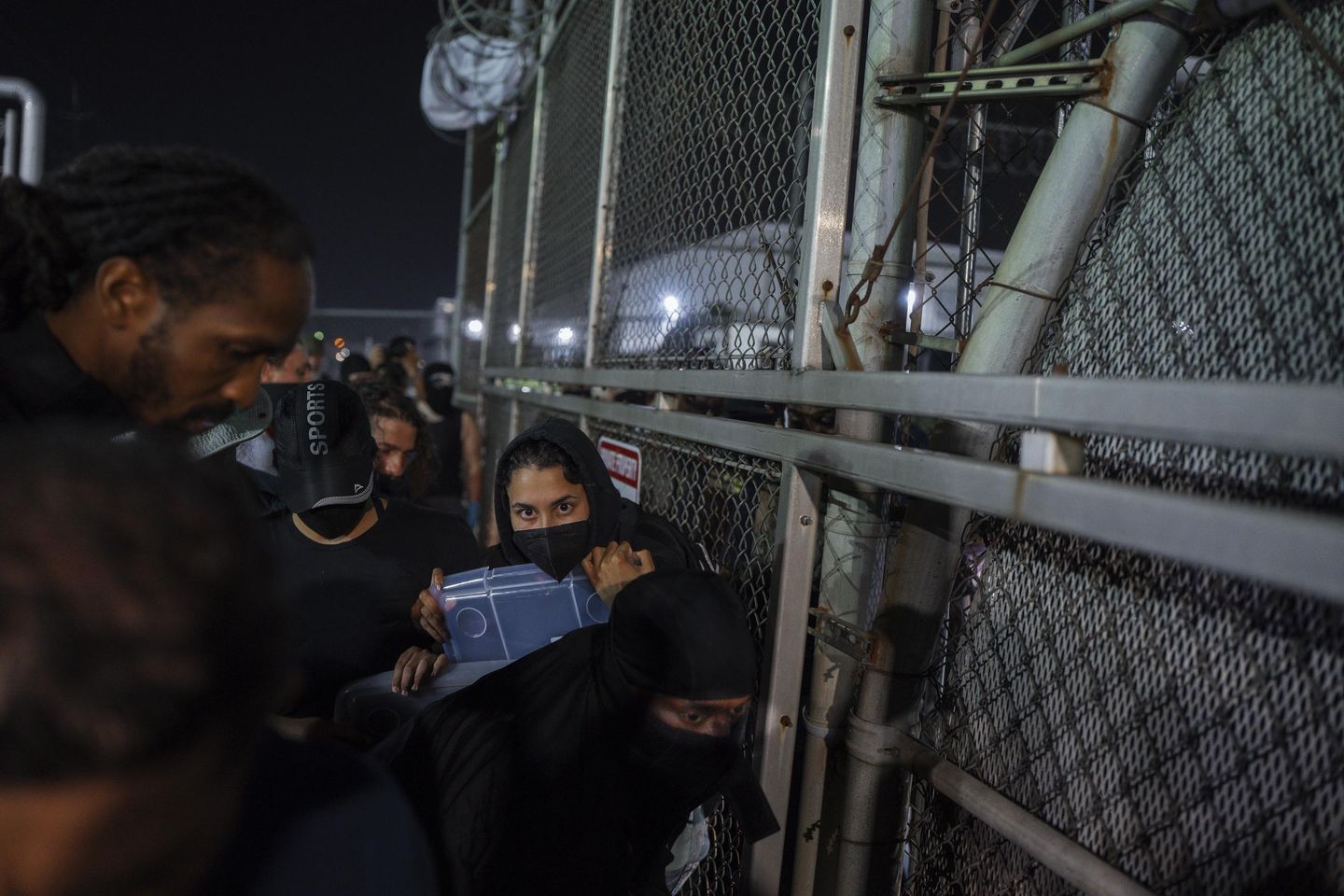
States cannot actively try to thwart federal immigration enforcement, an appeals court ruled Tuesday, blocking a New Jersey law that sought to ban ICE from contracting with facilities to detain migrants within its boundaries.
The 3rd U.S. Circuit Court of Appeals, in a 2-1 ruling, said New Jersey’s law was written specifically to foil U.S. Immigration and Customs Enforcement’s operations, crossing major constitutional lines.
“That law interferes with the federal government’s core power to enforce immigration laws,” wrote Judge Stephanos Bibas, a Trump appointee who was joined in the decision by Judge Cheryl Ann Krause, an Obama appointee.
ICE doesn’t build its own detention facilities but rather contracts with state and local jails and private prisons around the country to use their bed space, as long as it meets federal standards.
New Jersey’s law, enacted in 2021, bars local governments and private companies from reaching new contracts with ICE.
The state argued it wasn’t trying to control the federal government but rather set its own rules for businesses operating within its borders.
Judge Bibas, though, said that was a subterfuge.
“The U.S. Constitution is supreme, and intergovernmental immunity protects that supremacy. New Jersey’s law directly regulates the federal government, so it is unconstitutional as applied to CoreCivic,” he said.
CoreCivic, formerly the Corrections Corp. of America, is one of the country’s major operators of private prisons and is a significant contractor for ICE. Its Elizabeth (New Jersey) Detention Center can house more than 300 detainees and has a guaranteed minimum of 285.
Before ICE opened the Delaney Hall facility in Newark this year, the Elizabeth center was crucial for the agency, marking the only facility in the New York City area. Without it, detainees would’ve had to drive four hours to one in Pennsylvania — a trip that would absorb an entire day for officers assigned to make the run, Judge Bibas said.
“It would also gum up ICE’s flexibility to grow or shrink capacity as the levels and locations of immigration shift. It could even force ICE to release aliens with violent criminal records,” he said.
Judge Thomas Ambro, a Clinton appointee, dissented from the ruling, saying New Jersey’s law also prohibits private prisons for criminal detention in the state, so it wasn’t treating the government worse than any other entity.
He said there is no constitutional bar on the state’s law, and if the federal government wants to insist on its access to facilities it will take an act of Congress.
“The majority would have judges rather than legislators make politically sensitive judgments about when a neutral state law that does not apply to the United States interferes too much with federal interests,” he wrote.
Tuesday’s ruling upholds a federal district judge who had decided against the state. The Elizabeth Detention Center was operating while the case developed.
The new decision is limited to New Jersey’s law, but the ruling could reverberate around the country as other states and localities plot ways to try to interfere with ICE’s deportations.
Other states have tried similar restrictions on ICE detention.
And during the first Trump administration, King County, in Washington, forged a policy banning use of Boeing Field for deportation flights.
That order was struck down late last year by the 9th U.S. Circuit Court of Appeals, which said it trampled on the Constitution’s Supremacy Clause.
Immigration officials say the bans end up hurting detainees because they often must be held far from their homes, making visits with family or lawyers difficult.












